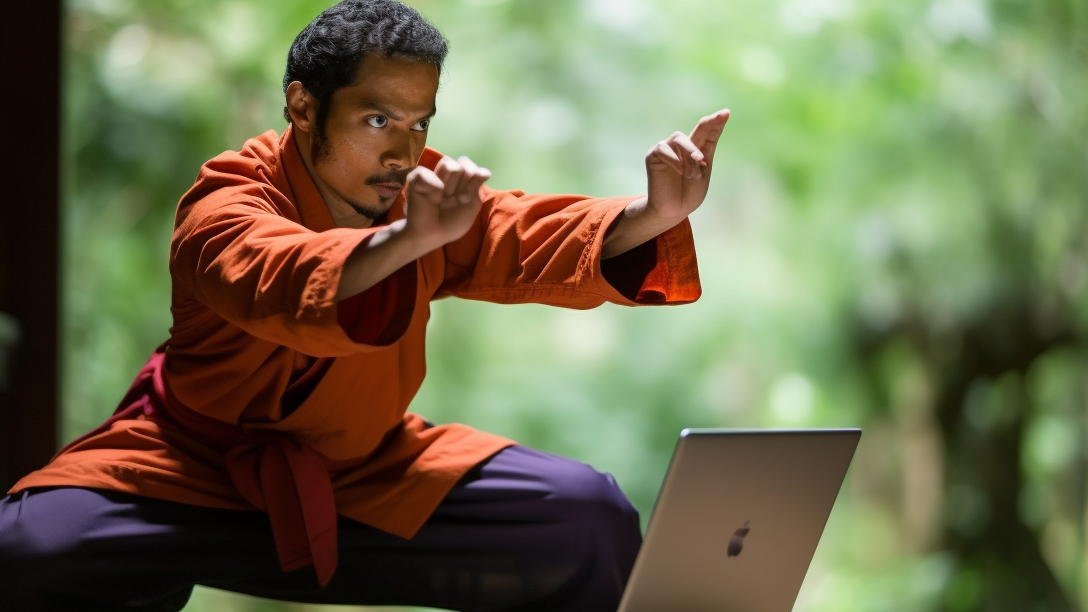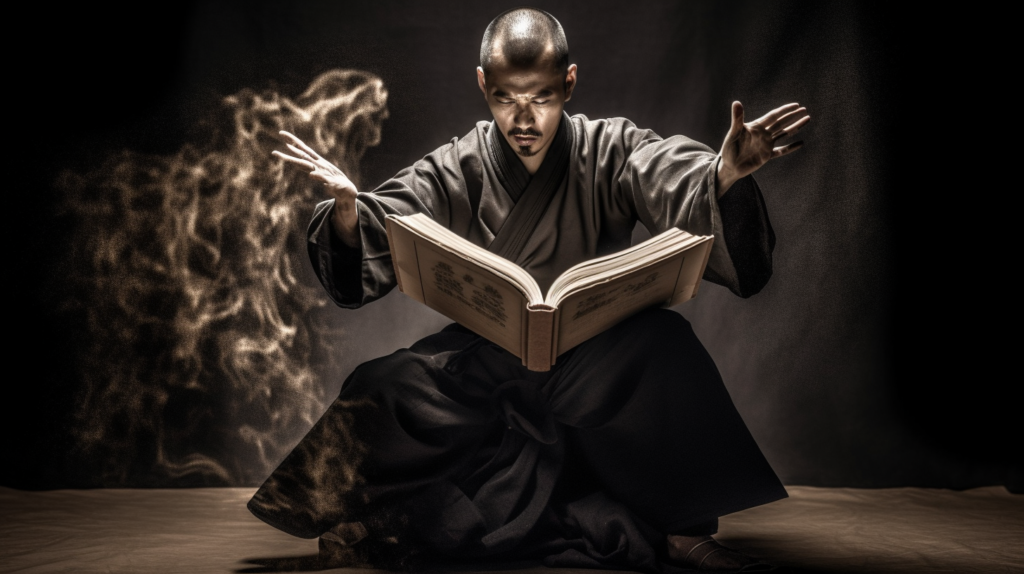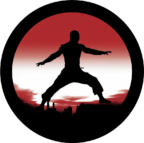If there’s one thing that most people are curious about when it comes to martial arts, it’s whether or not they can teach themselves. Specifically, can you teach yourself wushu? Wushu is an ancient Chinese martial art that has been around for thousands of years. It combines elements of self-defense, acrobatics, and graceful movements – and who wouldn’t want to be able to perform those gravity-defying kicks and flips like they do in the movies? But mastering this intriguing discipline on your own can seem like a daunting task. So let’s dive into this ultimate guide to find out if it’s possible to teach yourself wushu and become a martial arts master.
The History and Origins of Wushu

Before we answer the question “Can you teach yourself wushu?”, let’s take a quick trip back in time to understand its origins. Wushu was developed during the early Han Dynasty (202 BC – 220 AD) as a way for military personnel to stay fit and develop combat skills. Over time, it evolved into a popular form of self-defense and fitness training among civilians as well.
Wushu incorporates various styles from different regions across China. Some of these include Shaolin Kung Fu, Tai Chi, Wing Chun, Bagua Zhang, Xing Yi Quan, and many more. Each style has its unique techniques and movements that require dedication and practice.
Benefits of Learning Wushu
Before we delve deeper into answering “Can you teach yourself wushu?”, let’s explore some of the benefits of learning this ancient martial art:
- Improved physical fitness: Wushu is a full-body workout that can help you build strength, stamina, flexibility, and balance.
- Mental clarity and focus: As a discipline that requires intense concentration, wushu can help enhance your mental capabilities and focus.
- Boost self-confidence: Mastering wushu techniques gives you a sense of achievement and self-assurance.
- Self-defense: Learning wushu equips you with essential self-defense skills to protect yourself in dangerous situations.
- Cultural appreciation: As you learn wushu, you also gain an understanding of Chinese culture and history.
The Challenges of Teaching Yourself Wushu

Now that we’re familiar with the origins and benefits of wushu let’s address the burning question – can you teach yourself wushu? The short answer is yes; it’s possible to teach yourself this fascinating martial art. However, there are several challenges associated with self-teaching:
- Lack of guidance: Without a qualified instructor to correct your technique or offer personalized advice, it can be difficult to progress in your practice.
- Misinterpretation of techniques: When learning from books or videos, it’s easy to misunderstand the proper execution of certain moves, leading to bad habits or even injuries.
- Inadequate feedback: It’s hard to evaluate your own performance objectively without external feedback from someone experienced in wushu.
- Limited motivation and discipline: Staying motivated and disciplined while learning on your own can be challenging compared to group classes where peers keep each other accountable.
- Safety concerns: Practicing advanced techniques without proper supervision could lead to injuries if not performed correctly.
Tips for Successfully Teaching Yourself Wushu
Now that we’ve covered the challenges, let’s talk about how you can overcome them and teach yourself wushu. Here are some tips to help you on your journey:
- Start with a solid foundation: Begin by learning basic stances, punches, kicks, and footwork before attempting advanced techniques.
- Utilize multiple resources: Use books, videos, and online tutorials to diversify your learning materials. This allows you to see different perspectives and explanations of techniques.
- Record your practice sessions: Regularly film yourself practicing so you can review your performance and make adjustments where necessary.
- Set realistic goals: To stay motivated and disciplined, set achievable short- and long-term goals for your wushu practice.
- Seek feedback from experienced practitioners: Join online forums or local martial arts groups where you can ask questions and receive constructive criticism from others who share your passion for wushu.
- Attend workshops or seminars: If possible, take advantage of any wushu workshops or seminars in your area to learn from experienced instructors in person.
- Prioritize safety: Always warm up before practicing, use protective gear when necessary, and don’t attempt advanced techniques without proper guidance or experience.
Using YouTube to Learn Wushu

One of the most powerful tools for learning wushu at home is YouTube. This vast video-sharing platform offers countless tutorials and demonstrations that can significantly assist you in your martial arts journey. So, let’s explore how you can effectively use YouTube to learn wushu and become an awe-inspiring practitioner:
- Find reliable channels: Look for YouTube channels created by experienced wushu instructors or organizations with a good reputation in the martial arts community. Some noteworthy channels include Wushu TV and Kung Fu & Tai Chi Center with Jake Mace.
- Follow progressive tutorials: To maximize your learning experience, search for “wushu for beginners” or “wushu basics” videos to start with before moving on to more advanced techniques. Many channels offer comprehensive playlists structured in progression.
- Take notes: As you watch the videos, jot down important points or techniques that you want to remember and practice later. This will help reinforce your learning and ensure you don’t miss any crucial information.
- Pause, rewind, and rewatch: One advantage of using YouTube as a learning tool is that you can pause and rewatch sections as many times as needed until you fully grasp the technique being demonstrated.
- Create a daily practice routine: Dedicate specific times in your day or week to watching wushu videos and practicing the techniques learned from them. Consistency is key when it comes to mastering any skill.
- Engage with creators and other learners: Utilize the comments section on YouTube videos to ask questions, leave feedback or connect with other wushu enthusiasts who might be able to offer valuable insights or support.
- Combine YouTube lessons with other resources: While YouTube is an excellent source of wushu knowledge, don’t limit yourself exclusively to this platform. Combine it with other resources like books, workshops, and local classes to enhance your overall learning experience.
Remember that while YouTube can be a fantastic resource for aspiring wushu practitioners, it’s important to approach each video critically and discerningly. Not all content creators are experienced or qualified enough to teach wushu effectively. So, use your judgment and cross-reference information from multiple sources to ensure you’re getting accurate and reliable guidance.
Kung Fu Books to Teach Yourself Wushu

Although we live in an age of digital media, traditional books still hold immense value when it comes to learning wushu. Kung fu books written by renowned martial artists and instructors can provide a wealth of knowledge and insights into mastering this ancient art. So, let’s take a look at how you can benefit from kung fu books and some recommended titles to add to your library:
Benefits of Kung Fu Books:
- In-depth explanations: While videos often focus on demonstrating techniques, books can provide more detailed background information, step-by-step instructions, and explanations of the principles behind each movement.
- Portability: Books are easy to carry around and can be read anywhere – during your lunch break, on public transport, or even while waiting for an appointment.
- Focus on fundamentals: Many kung fu books emphasize building a strong foundation in terms of stances, footwork, and basic techniques – crucial aspects for anyone looking to teach themselves wushu.
- Consistency: A well-written book is likely to present information in a coherent and consistent manner compared to online resources that may vary in quality or reliability.
- Personalization: With a variety of kung fu books available covering different styles and aspects of wushu, you can choose those that best align with your interests and goals.
Recommended Kung Fu Books:
- “Chinese Martial Arts Training Manuals” by Brian Kennedy and Elizabeth Guo – This book offers translations of historical Chinese martial arts manuals along with insights into their cultural context.
- “The Complete Book of Shaolin” by Wong Kiew Kit – Shaolin Kung Fu is one of the most popular styles within wushu; this comprehensive guide covers its history, philosophy, training methods, and techniques.
- “Tai Chi Chuan Martial Applications” by Dr. Yang Jwing-Ming – For those interested in the martial aspects of Tai Chi, a style often associated with health and wellness, this book provides a wealth of knowledge on self-defense applications.
- “Wing Chun Kung Fu: Traditional Chinese Kung Fu for Self-Defense and Health” by Ip Chun and Michael Tse – Learn Wing Chun techniques and principles straight from the son of legendary martial artist Ip Man (Bruce Lee’s teacher).
- “The Art of Shaolin Kung Fu: The Secrets of Kung Fu for Self-Defense, Health, and Enlightenment” by Wong Kiew Kit – Another great resource on Shaolin Kung Fu that delves into various techniques, training methods, and meditation practices.
Remember to cross-reference information from multiple sources as you explore different kung fu books to ensure accuracy and consistency in your learning journey. Combining your reading materials with other resources such as YouTube videos or local classes can create a well-rounded approach to teaching yourself wushu. So grab a book, unleash your inner martial artist, and prove that you can indeed teach yourself wushu!
So there you have it – while it may not be easy, it is indeed possible to teach yourself wushu if you’re dedicated enough! With patience, discipline, hard work, and a bit of humor along the way (after all, who doesn’t laugh at themselves when trying to master those high-flying moves?), anyone can embark on the journey of self-discovery through the ancient art of wushu. So go ahead – answer the question “Can you teach yourself wushu?” with a resounding “Yes!” as you embark on this exciting adventure today!

